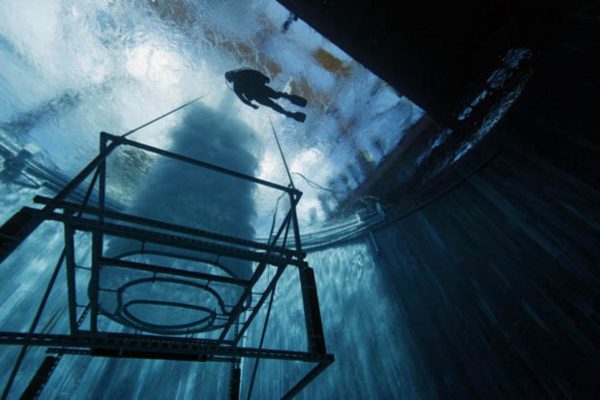AUSTIN, Texas — The U.S. Navy has awarded Applied Research Laboratories at The University of Texas at Austin (ARL:UT) the largest research contract in the university’s history — worth as much as $1.1 billion over 10 years — to conduct research and development to improve U.S national security.
ARL:UT is one of five Department of Defense (DOD) University Affiliated Research Centers, laboratories that have long-term strategic relationships with the DOD and are considered trusted agents. These affiliated research centers provide essential research capabilities, develop new technology for national security applications and provide technical advice to DOD program managers.
“The research performed and advancements made at The University of Texas at Austin are unparalleled,” said Gov. Greg Abbott. “I am proud of the work that is already underway at Applied Research Laboratories at UT, and I am looking forward to their continued contributions to our national security. I’d like to thank the Department of Defense for their investment in UT, its students, faculty and all those involved in this growing partnership.”
“Under this new agreement, UT scientists and engineers will expand their vital role developing research that advances science and promotes national security,” said President Gregory L. Fenves. “This contract demonstrates the massive impact UT research has on the world through the breadth and depth of our programs in engineering, technology, high-performance computing and applied science.”
Since its founding in 1945, ARL:UT has made significant contributions to the present state of knowledge in its basic core mission areas. ARL:UT has been a key developer of sonar equipment and processing techniques for the U.S. Navy, has led research on GPS and satellite navigation technologies since the inception of these technologies, and is on the forefront of the information sciences with research in areas such as cybersecurity, content understanding and quantum computing.
“Throughout its history, ARL:UT has been a leader in developing science and technology to enhance national security,” said Clark Penrod, ARL:UT’s executive director for the past 18 years.
“Many operational systems and capabilities developed and prototyped at our laboratories have made a difference in protecting the nation and improving lives. I am also proud of our role helping the Department of Defense make well-founded decisions about adopting new technologies. Both roles will be increasingly important as our nation’s adversaries become more technologically advanced, and as our DOD sponsors strive to become more efficient and cost effective.”
ARL:UT’s total funding for the past 10 years was approximately $887 million, primarily from federally funded research.
The contract will be administered by the Naval Sea Systems Command, which engineers, builds, buys and maintains the Navy’s ships and submarines and their combat systems.
Examples of the types of programs that the contract will fund include:
- The development of high-resolution sonar devices to enable manned and unmanned submersible platforms to navigate safely, avoiding obstacles and sea mines.
- Improved high-resolution hand-held sonar devices that allow divers to detect objects and more safely perform hull inspections.
- Improved signal processing, sensor technologies and decision support for tracking submarines and other underwater vehicles.
- Rugged instruments to survey the environment in the ocean and atmosphere and to detect threats.
- Improved technology for satellite navigation and GPS.
- Studies in artificial intelligence technology supporting national security such as investigation of trends to predict terrorist and cyber attacks.
- Improved technology for the detection of advanced cybersecurity threats.
- Technology to aid in the review, redaction and release of sensitive documents.
- Advanced algorithms for laser altimetry in support of scientific and national security applications.
Established at UT Austin in 1945, ARL:UT, which reports to the Office of the Vice President for Research, is the largest nonmedical research unit within the University of Texas System.
ARL:UT has made important contributions to the university’s educational mission by providing more than 4,000 students with valuable work experience over its history, helping to encourage and shape the students’ careers in science and engineering. ARL:UT was also one of the first high-tech employers in Austin, and several ARL:UT staff members went on to form other high-tech Austin companies such as Tracor and National Instruments.
ARL:UT employs about 400 scientists and engineers, out of a staff of nearly 750 and has 100 students working year-round.




